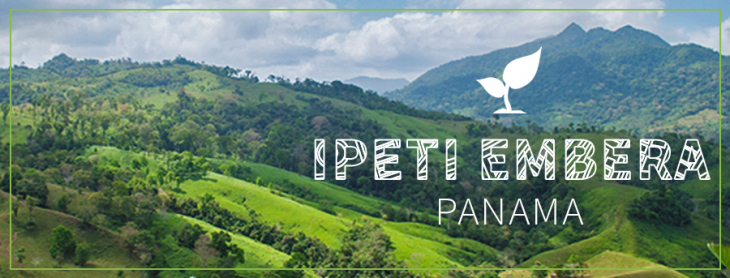About Ipeti Emberá
Ipeti Emberá is an indigenous Emberá community of about 85 homes
and 600 inhabitants. It is located in the district of Tortí along the Pan
American highway in East Panama province. Ipeti Emberá is a farming
and artisan community. Families produce crops like rice, plantains, yucca,
and corn for their own consumption as well as to sell to intermediaries.
Many women and some men sell traditional artisan crafts as well. As one
of Global Brigades Panama’s holistic communities, Medical/Dental brigades
conduct mobile clinics, Microfinance brigades works with the community
bank, and Environmental brigades are combating unsustainable agricultural
techniques in the community with a Model Farm.
Ipeti Emberá's Environmental Challenge
The majority of community members depend on the land for their livelihoods
including income, daily subsistence, traditional art crafts, and construction of
traditional Emberá family dwellings. The environment is currently threatened
by both external forces in the region at large and internal unsustainable
cultural norms that result from lack of education. On a micro level, the Emberá
communities of East Panama practice unsustainable agricutlure techniques,
such as slash-and-burn, monoculture, and the use of chemical fertilizers and
pesticides. Slash-and-burn is a method that depletes nutrients every
crop cycle and over time will lead to completely infertile land. These practices
combined with monoculture style and limited crop varieties in the area threaten
these communities most precious resource—their land.
In addition, there is no existing system of waste management in the community. Most families will burn their trash or throw it in the river, for lack of options and awareness of the harmful effects of these practices. All of Panama, and in recent decades Eastern Panama in particular, has been threatened by rapid deforestation and soil erosion due to cattle ranching, logging, and colonization of highly forested areas. Large tracts of land at extremely low prices has favored rapid, unsustainable expansion and attracted teak tree farms and cattle ranches, both of which devastate native species.
The Environmental Solution for Ipeti Emberá
Environmental Action
Environmental Brigades' projects are rooted in techniques of permaculture. The community's Model Farm project works primarily with the adults of the community and addresses the environmental issue of unsustainable farming practices. The Model Farm, constructed on communal land, servces as a small-scale example field of permaculture style farming. It consists of different components of crops, such as corn, plantains, cassave, and livestock, such as a tilapia pond and chicken coop. As a community of farmers, the project capitalizes on the community’s assets and promotes native species growth and soil fertility, all while providing sustainable methods for their agricultural based income.
Environmental Education
In addition to the hands on projects, an important part of Environmental Brigades work in Ipeti Embera is the education workshops given by brigaders with the support of the Environmental team. Past workshop in other communities include topics such as organic fertilizers, composts, pest and disease control, plant health, greenhouse maintenance, and waste management and the ecological effects of improper waste disposal. Future brigaders will reinforce these topics with the schoolchildren, as well as the adults of the community.
| Environmental Brigades Chapters that Worked in Ipeti Emberá |
|||
| Environmental Brigades Chapter | Month | Volunteers | Model Farm Components |
| University of San Diego | January 2015 | 35 | Rice Paddy (construction), Chicken Coop (construction) |
| Washington University St. Louis & Yale University | March 2015 | 17 | Tilapia Pond (construction) |
| Brown University | March 2015 | 24 | Tilapia Pond (follow-up), Chicken Coop (follow-up), Clear land for planting |
| Indiana University & Ball State University | May 2015 | 19 |
Eliminate weeds, Plantains (planting), Corn (planting), |
| UCLA, UC San Diego, Drexel University & Southampton University |
June 2015 | 17 | Plantains (follow-up), Cassava (follow-up) |
| St. Olaf College | January 2016 | 12 |
Peppers (preparing land), Tilapia (registry), Corn (harvest), Yucca (harvest) |
| Carnegie Mellon University | March 2016 | 26 |
Chicken coop (construction), Guandu (preparation) |
Visit Other Programs in Ipeti Emberá
Global Brigades strives to implement a model of Holistic Development in communities through a system of collectively implementing health, economic, and education initiatives to strategically meet a community's development goals. Learn more about the other programs being implemented in Ipeti Emberá:
![]() Business
Business ![]() Dental
Dental ![]() Human Rights
Human Rights ![]() Medical
Medical ![]() Microfinance
Microfinance ![]() Public Health
Public Health
| Project Overview | |
| Beneficiaries | n/a |
| Volunteers | 146 |
|
Components of the Model Farm Implemented: |
7 |
| Hours of Education |
n/a |
| Additional Information |
| General Community Profile |
| Environmental Commitee Profile |
| Pre-Brigade Lesson Plan |
| On-Brigade Lesson Plan |
| Education Guide |
